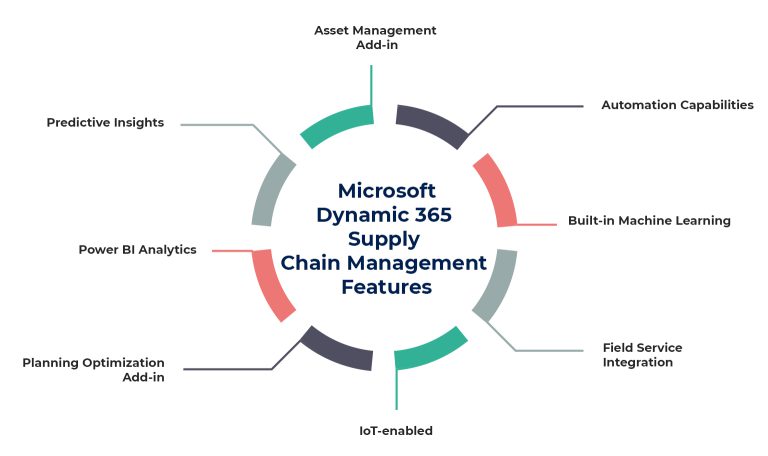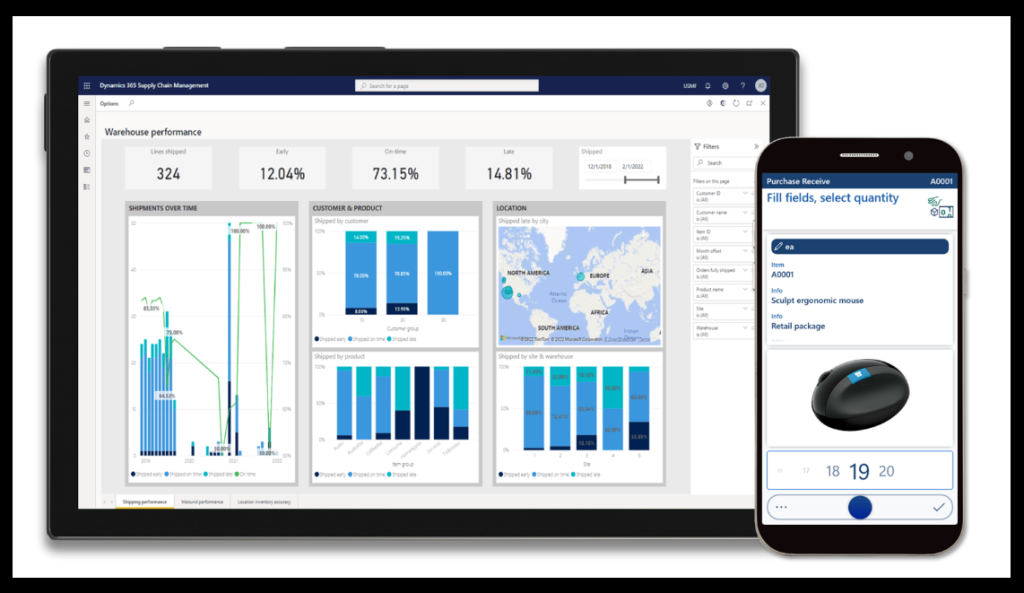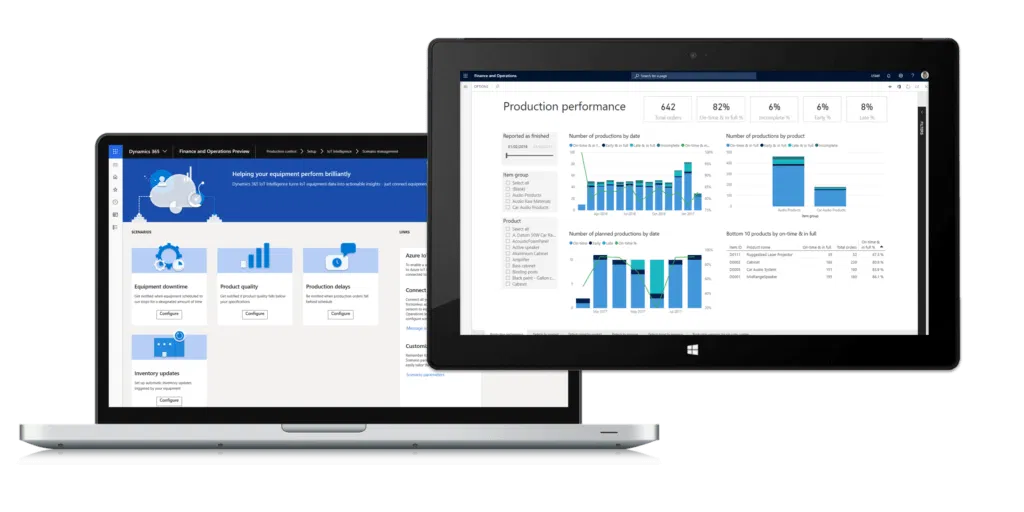- What is Microsoft Dynamics 365 Supply Chain Management?
- What are the key features of Dynamics 365 supply chain management?
- How can Dynamics 365 SCM improve demand forecasting?
- Can Dynamics 365 SCM be integrated with other systems?
- What are the benefits of using Dynamics 365 SCM to manage inventory?
- How does Dynamics 365 SCM support manufacturing processes?
- What are the advantages of a cloud-based deployment?
- How does Dynamics 365 SCM handle regulatory compliance?
- Is the role of iot in Dynamics 365 SCM?
- How can organizations ensure a successful implementation of Dynamics 365 SCM?
- Is Dynamics 365 SCM for businesses of all sizes?
- What reporting and analysis capabilities does Dynamics 365 SCM provide?
- How does Dynamics 365 SCM facilitate collaboration across departments?
- What are the common challenges when implementing Dynamics 365 SCM?
- Can I get a trial or demo of Dynamics 365 SCM?

The benefits of Dynamics 365 supply chain management
Enhanced visibility and control :D365 SCM provides a unified view of the entire supply chain to help organizations better understand their operations, identify potential issues, and make proactive decisions.
Increased efficiency: Automating key processes such as purchasing, inventory management, and order fulfillment reduces manual work, simplifies operations, improves efficiency, and reduces costs.
Improved demand forecasting: Advanced analytics and AI-driven forecasting tools enable more accurate demand forecasting, helping organizations optimize inventory levels and production planning.
Better collaboration: Integration with other Dynamics 365 applications and Microsoft tools such as Teams and Power BI enhances information sharing and collaboration across departments and with external partners.
Scalability and flexibility: As a cloud-based solution, D365 SCM offers the scalability to adapt to business growth and the flexibility to respond to changing market conditions.
Regulatory Compliance: Help ensure compliance with industry regulations and standards by providing powerful quality management and reporting capabilities.
Product characteristics

Our services
-
 D365 Supply chain implementation
D365 Supply chain implementationSystem implementation and configuration: Responsible for the implementation and configuration of Dynamics 365 Supply Chain, including system installation, function setup, data migration, and system integration. Ensure that the system integrates seamlessly into the customer's business environment and meets their supply chain management needs.
-
 Custom development
Custom developmentCustom development and function expansion: System customization and function expansion based on the specific needs of customers, including the development of custom modules, integration of third-party applications, and creation of specific reports and dashboards to meet the unique supply chain management needs of customers.
-
 Operation support
Operation supportUser Training and Support: Provide system use training to ensure that customer teams can effectively use Dynamics 365 Supply Chain. Training covers system functions, operational processes, best practices, and provides ongoing technical support to help customers solve problems in use.
Product Questions&Answers
Click on our FAQ to get the best answer!
Request Callback
Please complete the form below and we will be in touch or book a call with one of our Microsoft consultants.

























